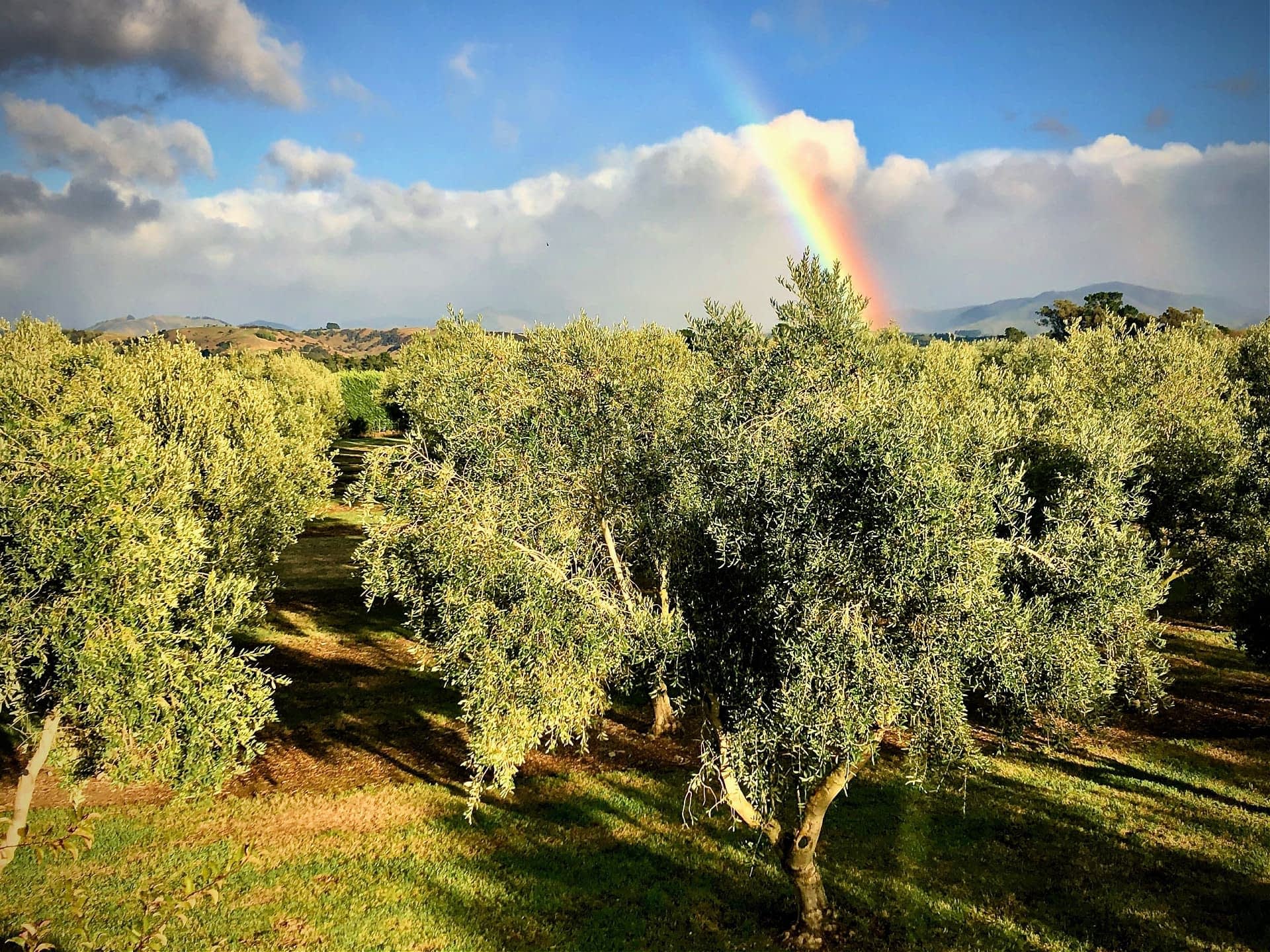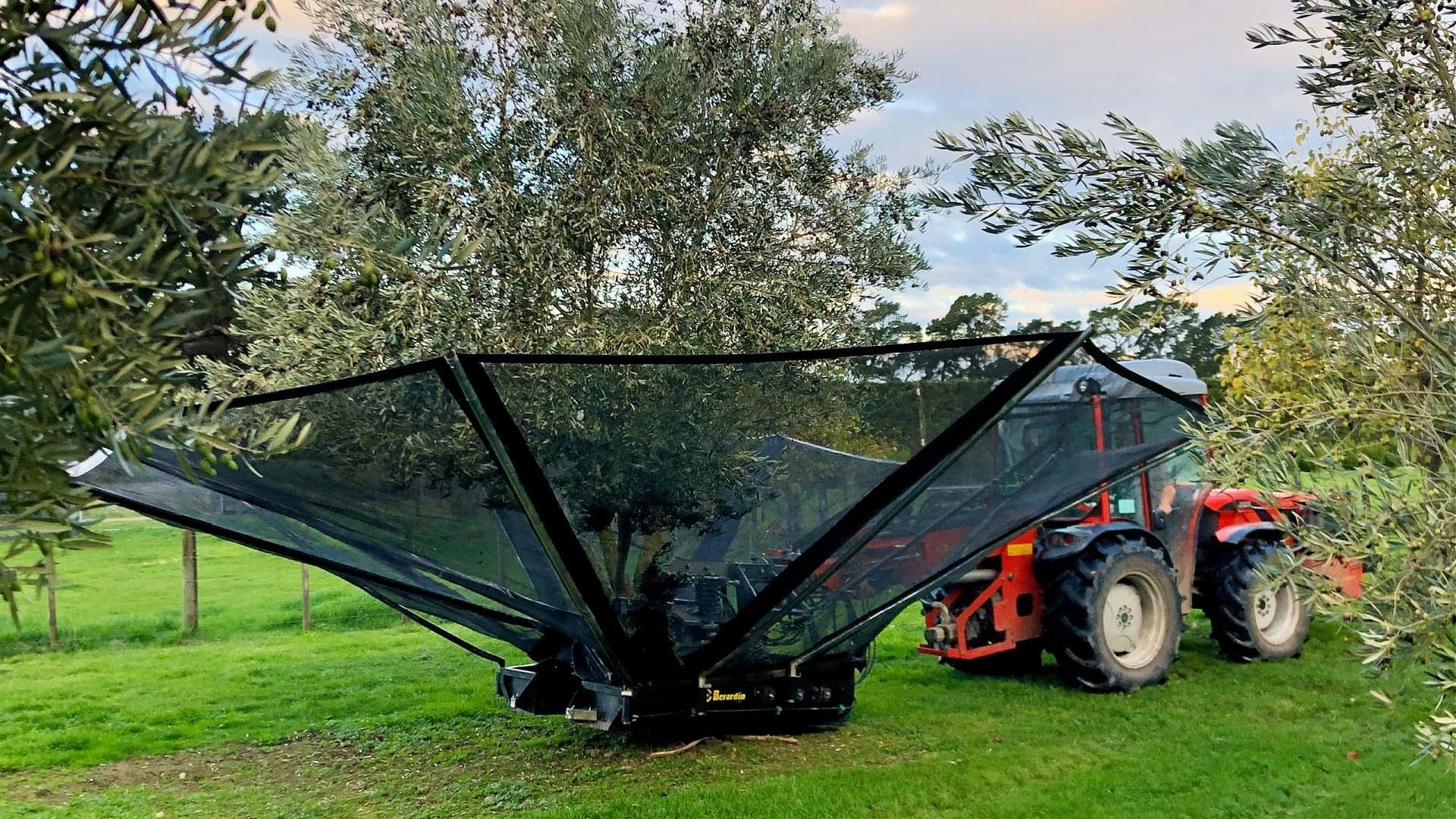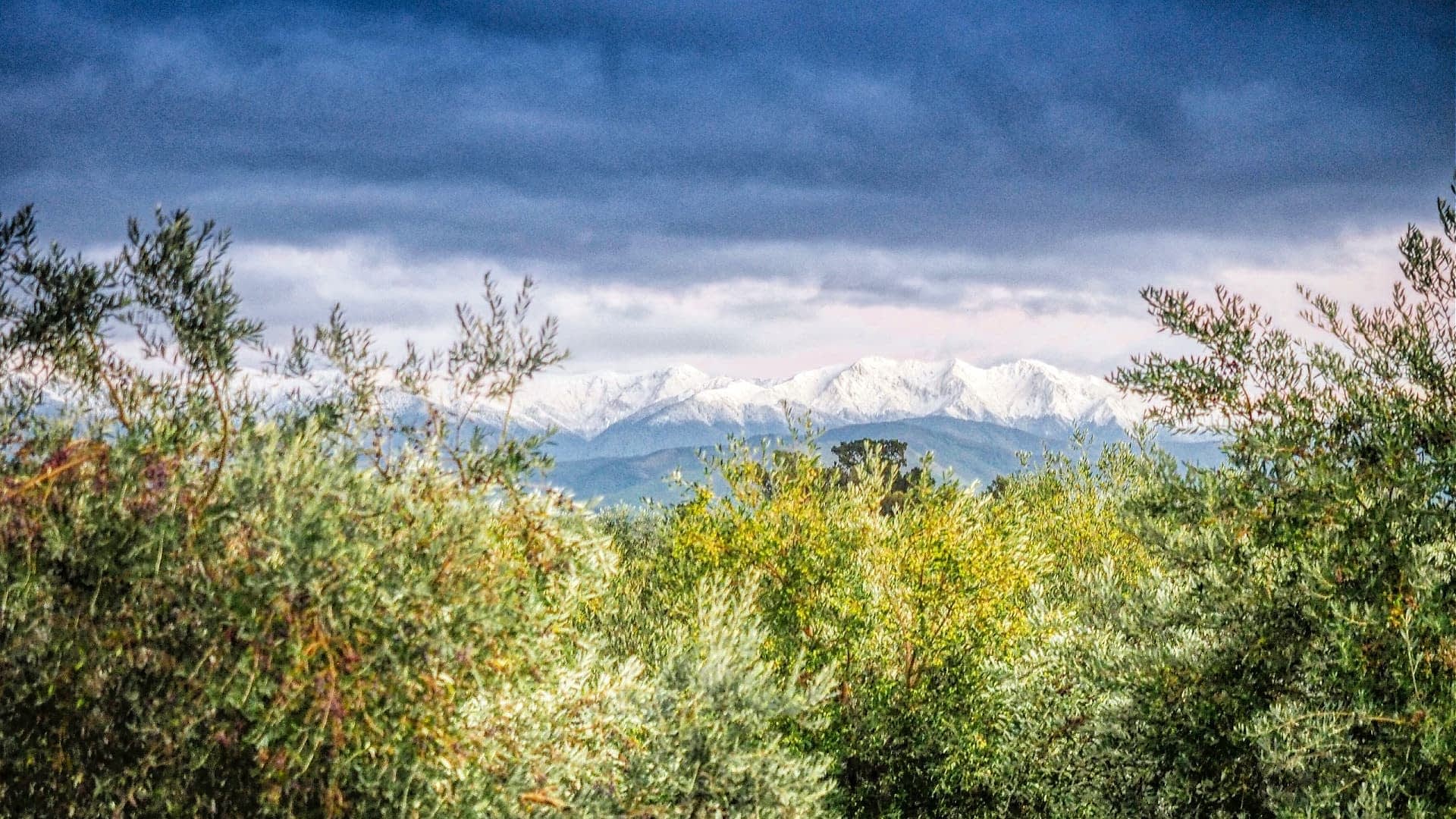Former Fighter Pilot Steers Loopline Olives to the World Stage
On New Zealand's North Island, Stephen Davies Howard has taken advantage of the Mediterranean climate to produce award-winning olive oils.
 Loopline Olives
Loopline Olives Trekkers and tourists descending from the Tararua Range in the south of New Zealand’s North Island may arrive in the small village of Opaki.
Located in the fertile land of the Wairarapa’s Ruamāhanga River area, between Tararua Forest Park and the Pacific Ocean, the land has long been devoted to agriculture.
Being in New Zealand, one of the interesting facts about our monovarietals is that their quality and flavor profile completely matches what you would expect from these cultivars of European origin.
This scenic spot is also where the olive orchards of Loopline Olives thrive and where some of the world’s best extra virgin olive oils are made.
Characterized by long and dry summers and protected from strong western winds by the gentle slopes of the 1,500-meter-tall peaks of the Tararua Range, Wairarapa has long been home to wine producers.
See Also:Producer ProfilesA few years ago, a British olive oil sommelier settled in Wairarapa and acquired Loopline Olives. Applying his knowledge and experience, Stephen Davies Howard brought its olive oil production to the world stage.
“My father and grandfather back in the United Kingdom were cabinet makers, and I grew up around wood, but I can say that my interest in olive oil, olive trees and olive growing sprung up during my staying in Puglia, during the war in Bosnia,” Davies Howard told Olive Oil Times, hinting at the charm and beauty of Apulian olive growing landscapes.
“My background is as a fighter pilot with the Royal Air Force. I fell in love with New Zealand in more recent times whilst sailing around the world on my yacht,” he added. “So I settled here and there I was, with a thousand olive trees, feeling the responsibility for their health, enjoying their beauty.”
Olive production in New Zealand began expanding in the late 1980s when cuttings from Israel were imported to Blenheim, on the South Island.

Loopline Olives
According to the New Zealand Olives NZ association, olive orchard expansion spiked in the 1990s, with more than 200,000 new trees planted through the country.
Local farmers found that olive trees, primarily Italian and Spanish varieties, seemed to match the country’s unique climate perfectly. Still, the first olive trees in the country arrived well before that.
In 1835, Charles Darwin, observing the Walmate area on the South Island, wrote about the farming settlements there, where “I may instance asparagus, kidney beans, cucumbers, rhubarb, apples, pears, figs, peaches, apricots, grapes, olives, gooseberries, currants, hops, gorse for fences and English oaks; also many kinds of flowers.”
“Given the extension of our olive groves and the current state of olive oil culture in the country, we decided to do what we knew we could achieve: focus on quality, not on volumes,” Davies Howard said.
Since 2019, Loopline Olive extra virgin olive oils have won awards at the NYIOOC World Olive Oil Competition.
Loopline Olives earned two Gold Awards for a pair of Picholine and Picual monovarietals in both the 2020 edition and 2021 NYIOOC. The company has also won awards with its Frantoio and Leccino monovarietals.
“Being in New Zealand, one of the interesting facts about our monovarietals is that their quality and flavor profile completely matches what you would expect from these cultivars of European origin,” Davies Howard said.
The NYIOOC panel of judges appreciated the Picholine for its tasting sensations of anise, lettuce, black pepper, tomato leaf and artichoke, according to the Official Guide to the World’s Best Olive Oils.
However, the Picual extra virgin olive oil is milder.
“It presents fresh green leaves, freshly cut grass and a beautiful aroma on the nose, well transferred to the palate with rocket, tomato leaf and artichoke. It is mild, with well-balanced bitterness and pungency and a lingering smooth finish,” the judges wrote.

Loopline Olives
“We produce about 3,000 to 3,500 liters a year,” Davies Howard said. “They all are sold on the internal market.”
Today, Olives NZ estimates that olive oil consumption is approximately four million liters per year, with local production covering less than 10 percent of the internal demand.
“Annual production ranges from 200,000 liters to 400,000 liters per annum depending on the year,” Olives NZ wrote. About 90 percent of the olive oil imports come from Spain.
For the country’s high-quality producers of extra virgin olive oils, the challenge is to promote olive oil culture and some basic knowledge about their products.
“New Zealand consumers today are not used to high-quality olive oil, as most of them buy what they find in food retailers shops, which are mostly imported olive oils which over time might have lost many of their qualities,” Davies Howard said.
“There are even producers that rebrand as New Zealand olive oil products which have been imported long before and could probably not even qualify as extra virgin,” he added. “Our efforts, of course, are aimed at letting people understand more about what an extra virgin olive oil is, what it means to transform the olives within six hours from harvest, and when they listen to that, I can see how interested they become.”
“Most Loopline Olives customers age range between their late 30s to late 40s, with mostly women at younger ages and men at older ages,” Davies Howard continued. “They are very focused on the health benefits of extra virgin olive oils.”

Loopline Olives
Given the beneficial impact of antioxidants found in extra virgin olive oil, the New Zealand grower noted how one of the most relevant selling points for Loopline Olives is their high polyphenol counts.
“Last year, we were in the 800 milligrams per kilogram,” Davies Howard said, underlining how seasonal changes would not make those numbers drop under 270 to 350 milligrams per kilogram, which he said was still above many other extra virgin olive oils on the market.
Today in New Zealand, a slowly improving understanding of extra virgin olive oil quality has not yet translated into olive grove expansion.
Since the 1990s, Olives NZ wrote, “a number of groves were removed (and unfortunately continue to be removed), either in a move to a higher-yielding crop (e.g., grapes) or because the varieties planted were not suitable.”
The association estimates that today 400,000 olive trees are growing in New Zealand. While there are more than 300 productive groves in the country, at least 100 groves are not currently managed.
“These are typically smaller groves where there is a lack of knowledge or perceived inadequate return on investment to warrant the grove being farmed productively,” Olives NZ wrote. “These dormant groves are a poor use of the land but potentially could contribute towards the solution where demand for New Zealand extra virgin olive oil exceeds supply.”
“Olive oil culture is crucial,” concluded Davies Howard. “We are working hard to promote it using every possible means such as social media, an environment where we can engage with people about the benefits and qualities of high-quality extra virgin olive oil.”








